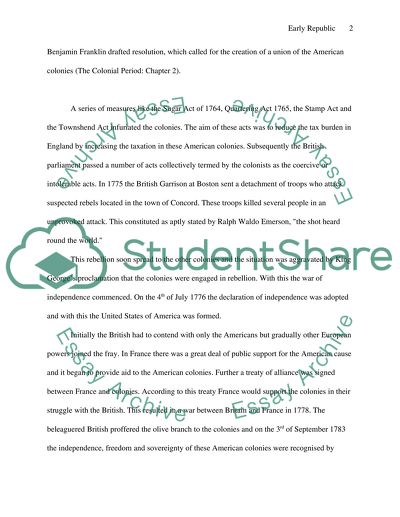Cite this document
(“Nature of the early republic Essay Example | Topics and Well Written Essays - 1500 words”, n.d.)
Nature of the early republic Essay Example | Topics and Well Written Essays - 1500 words. Retrieved from https://studentshare.org/miscellaneous/1502455-nature-of-the-early-republic
Nature of the early republic Essay Example | Topics and Well Written Essays - 1500 words. Retrieved from https://studentshare.org/miscellaneous/1502455-nature-of-the-early-republic
(Nature of the Early Republic Essay Example | Topics and Well Written Essays - 1500 Words)
Nature of the Early Republic Essay Example | Topics and Well Written Essays - 1500 Words. https://studentshare.org/miscellaneous/1502455-nature-of-the-early-republic.
Nature of the Early Republic Essay Example | Topics and Well Written Essays - 1500 Words. https://studentshare.org/miscellaneous/1502455-nature-of-the-early-republic.
“Nature of the Early Republic Essay Example | Topics and Well Written Essays - 1500 Words”, n.d. https://studentshare.org/miscellaneous/1502455-nature-of-the-early-republic.


